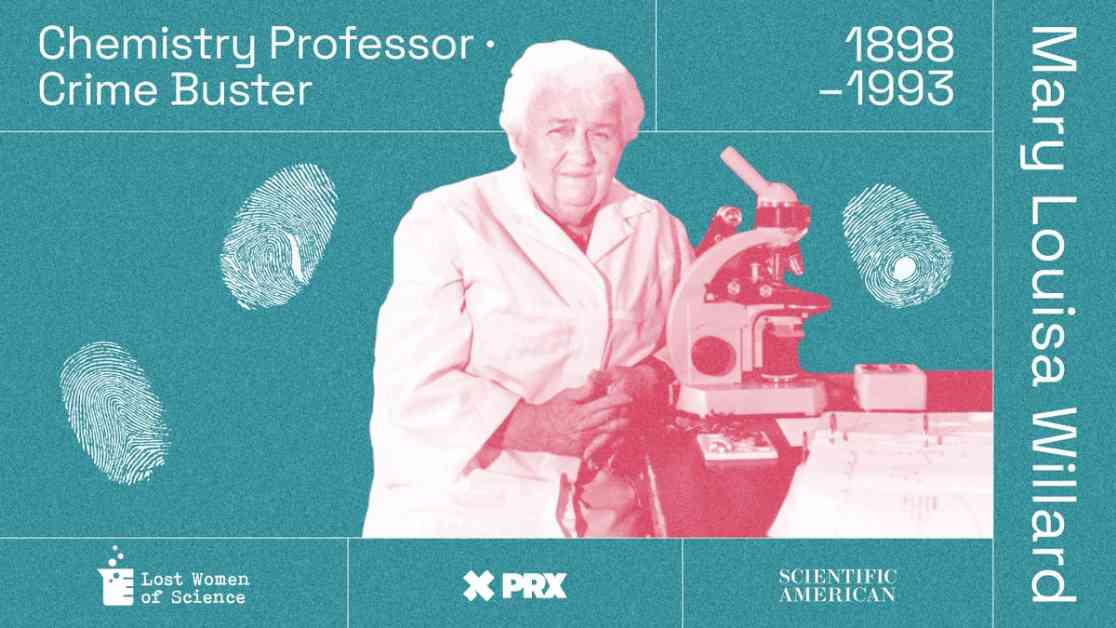Mary Louisa Willard, a chemistry professor at Pennsylvania State University in the late 1920s, was a unique and colorful character, well-known in her hometown of State College, Pa. for her pink Cadillac and her love for throwing birthday parties for her cocker spaniels. However, what many didn’t know was that she had a side hustle as a forensic criminologist, using her chemistry expertise to help solve crimes around the world.
Mary’s career began at Penn State University where she was born and raised in an academic family deeply rooted in the university’s history. She graduated with a bachelor’s in chemistry in 1921, one of the few women at the time to do so. She went on to earn a master’s and a PhD in organic chemistry from Cornell, eventually returning to Penn State as a professor in the chemistry department.
Mary’s interest in microscopy and chemical analysis led her to become an expert in chemical microscopy, a field that would later prove crucial in her work as a forensic criminologist. At a time when forensic science was still in its early stages, Mary’s expertise in analyzing chemical structures and identifying substances made her a valuable asset to law enforcement agencies.
While she continued to teach at Penn State, Mary’s side hustle as a forensic criminologist gained momentum. She worked on cases ranging from homicides to forgeries, using techniques like chemical microscopy and gas chromatography to analyze samples and provide crucial evidence in court. Mary’s work as an expert witness in major criminal trials, such as the case of Dan Bolish, where she helped convict him of arson and murder, showcased her dedication to justice and truth.
Despite her success in solving crimes, Mary remained humble and focused on her role as an educator. She believed in the importance of educating law enforcement officers, lawyers, judges, and juries on the significance of collecting and preserving evidence properly. Mary’s legacy extends beyond her crime-solving abilities; she was remembered by her students and colleagues for her kindness, attention to detail, and dedication to her students.
In 2009, one of Mary’s former students endowed a scholarship in her name, recognizing her impact as a teacher and mentor. While Mary may not have a building named after her on campus, her influence lives on through the students she inspired and the cases she helped solve. Mary Louisa Willard was not just a professor or a criminologist; she was a force for good in whatever she undertook, leaving a lasting impact on those who knew her.





